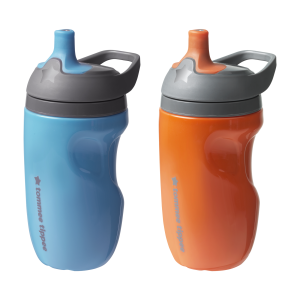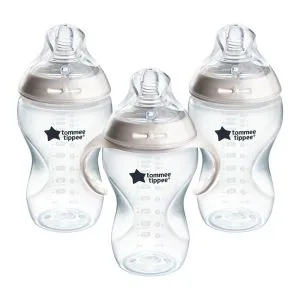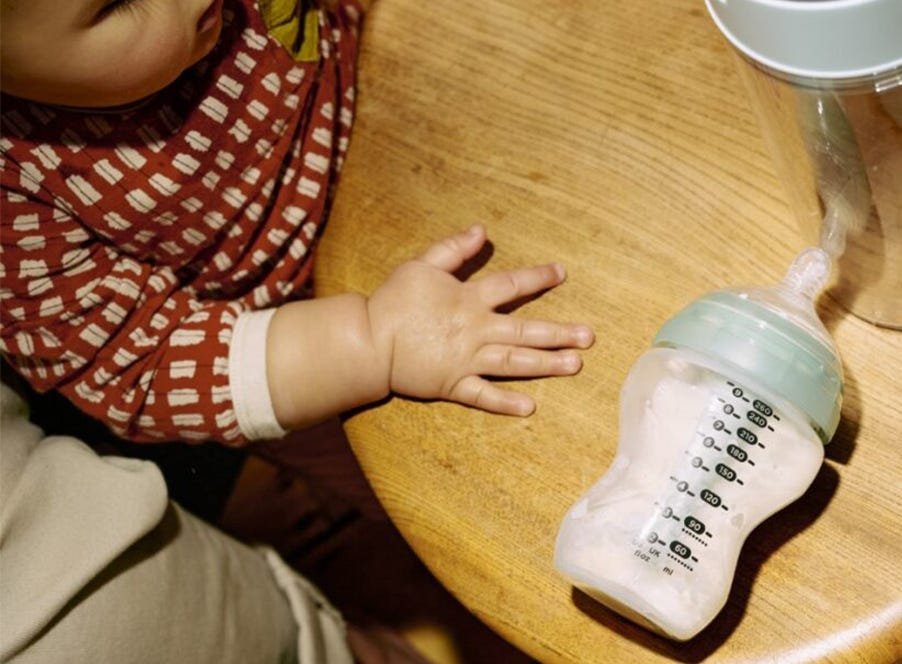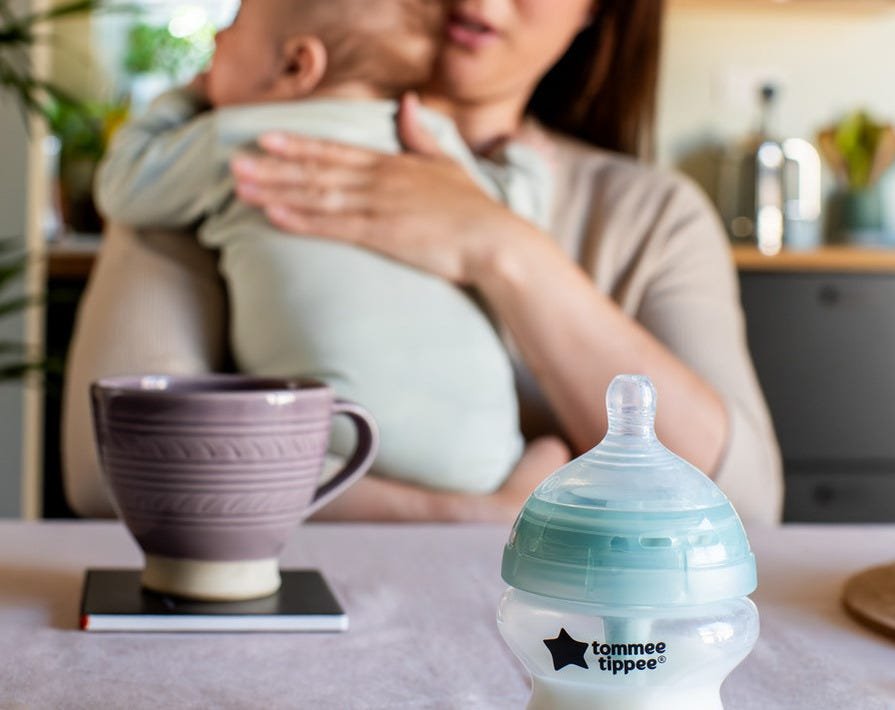Top tips for coping with baby colic
If your baby does have colic, you'll understandably be looking for ways to comfort and soothe them. The following tips may help:
Swaddling
Some babies love being swaddled with their arms tucked into their chest because it reminds them of being in the womb. If you do swaddle your little one, make sure to lay them on their back, and stop swaddling them as soon as they show signs of being able to roll over on their own.
Soothing sounds
Whether it's your voice, white noise, or some calming background music, sound is a great way to soothe and distract an upset baby.
Baby massage
Gently rubbing your baby's tummy in circular motions after a diaper change can help to aid their digestion and release any trapped wind. It's best to massage your baby's tummy as a preventative measure when they're content and not crying or in pain.
Burping
Try winding your baby more often after their feeds. This will help to release any trapped air and soothe any tummy pains that are upsetting them.
Go for a ride
Some babies find movement soothing. Going for a drive in the car, popping them in their pram for a stroll around the block, or rocking them in their Moses basket may help to calm and comfort them.
Skin-to-skin and swaying
Feeling close and connected to you may help to calm and soothe your baby. Holding them close to your chest as you sway gently lets them feel your heartbeat and can help settle them.
Give them a warm bath
We all know that soaking in a warm bath is relaxing, and some babies find it relaxing too! The warmth of the water will help to relax their muscles. Plus, splashing about and playing with bath toys will provide some welcome distraction for you both.
Go fast flow
If you're bottle feeding and your baby is colicky, one reason could be that the bottle teat has too small a hole, causing them to ingest air. Switching to a fast-flow anti-colic bottle nipple will help to reduce the amount of air your baby swallows.
Repositioning
Holding your little one upright during feeds can reduce the amount of air they swallow and helps to prevent trapped wind. When they're not feeding, rather than cradling them face-up, you can try lying your baby with your hand under their belly and their head on your forearm.
Change their feed
If you're using formula to feed your little one, it may help to ask your health visitor or doctor about using a hypoallergenic formula. Colic shouldn't affect your little one's feeds, but if they lose their appetite or don't appear to be gaining weight properly, you should speak to your doctor.
Hang in there and ask for support
Remember that all parents who go through colic find it tough, and you're not alone! It's a difficult phase, but it won't last forever. Remember that it's ok to put your baby down somewhere safe (like in their cot or Moses basket) and have 10 minutes to yourself. Try to care for yourself, stay calm, take a break, and reach out to friends and family for support whenever you need it.
Should I give my baby anti-colic drops?
If you're thinking of giving your baby supplements or drops that claim to help with colic, it's best to speak to your doctor or health visitor before you do so. There's insufficient evidence to show that these products work.
When to seek help for soothing colic
Although it can be unpleasant, colic isn't normally anything to worry about.
But if your baby's colic symptoms aren't improving after the age of four months, you're worried it might be something more serious than colic, or are struggling to cope with your baby's crying at any time, don't hesitate to get in touch with your doctor or health visitor for advice and support.
They will be able to investigate further and can point you in the direction of support groups in your local area.










